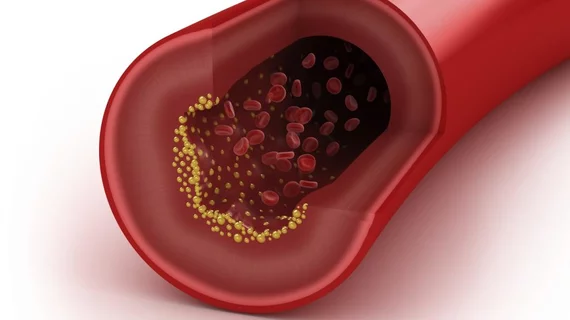Deep learning valuable for assessing coronary plaques on CCTA scans
Deep learning can help radiologists identify coronary plaque differences on CT scans, which may prove useful for predicting coronary artery disease, new research suggests.
Coronary CT angiography is a non-invasive, reliable method for evaluating coronary plaques and ruling out CAD. But CCTA is less effective when used to assess non-calcified plaques, which can contribute to acute coronary syndrome, researchers explained Saturday in Radiography.
A newly developed convolutional neural network can overcome some of those challenges and perform similarly to board-certified radiologists. The tool proved more accurate than a cardiac radiologist with 15 years of experience while rivaling an even more seasoned rad.
“In our study, the performance of the DL-CNN was superior to that of [one] radiologists with respect to the identification of fibrous, fatty or fibro-fatty plaques, suggesting that DL-CNN is useful for assessing the characteristics of coronary plaques on CCTA images,” Kazuo Awai, with the Department of Diagnostic Radiology at Hiroshima University in Japan, and co-authors wrote.
For the study, Awai et al. enrolled 178 patients with 191 coronary plaques who had received a CCTA scan and intravascular ultrasonography exam at a single institution. They trained the system using 153 plaques and tested it on 38.
Comparing the area under the curve scores between man and machine, the CNN reached a “significantly” higher AUC compared to the less-experienced rad. The tool performed similarly to the reader with 22 years of experience.
The researchers could not explain why the tool performed so well, primarily because there is no audit trail to verify its decisions. With this, more work will be needed to validate its effectiveness.
“We think that although like plaque histogram analysis, CNN can evaluate plaque inhomogeneity, additional techniques are needed to provide insights into the features identified on feature maps obtained by CNN,” the group concluded.

